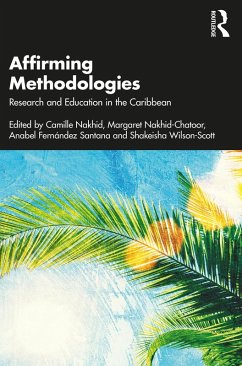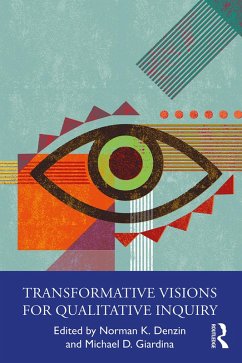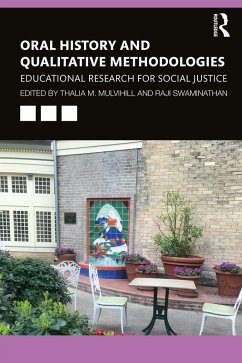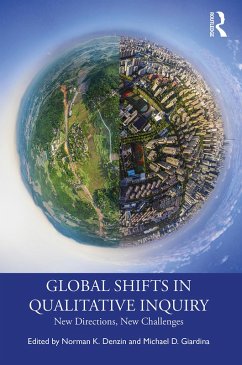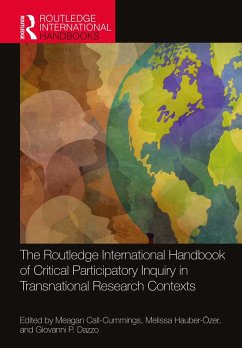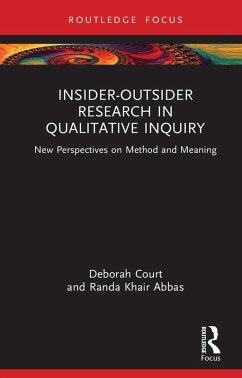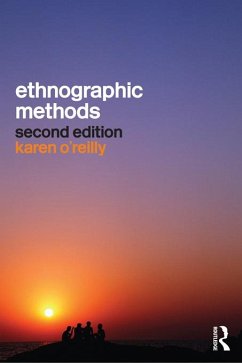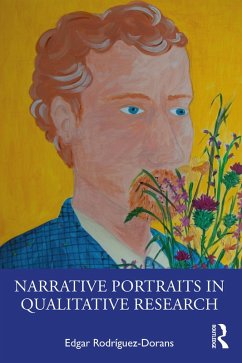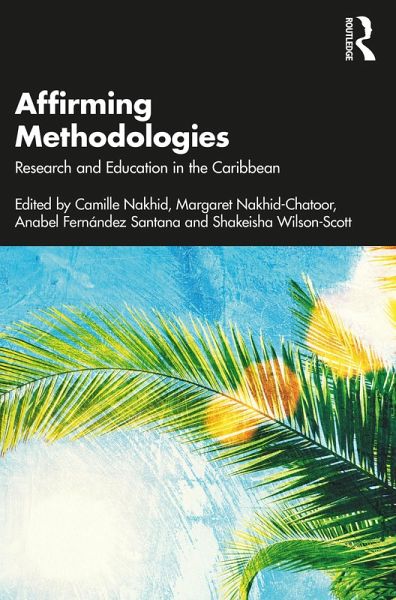
Affirming Methodologies (eBook, ePUB)
Research and Education in the Caribbean
Redaktion: Nakhid, Camille; Wilson-Scott, Shakeisha; Fernández Santana, Anabel; Nakhid-Chatoor, Margaret
Versandkostenfrei!
Sofort per Download lieferbar
42,95 €
inkl. MwSt.
Weitere Ausgaben:

PAYBACK Punkte
21 °P sammeln!
Affirming Methodologies: Research and Education in the Caribbean centres local and indigenous ways of knowing in research and education praxis in the Caribbean. The research methodologies and pedagogies are presented in this book within an Affirming Methodologies framework. They bring forward localized epistemologies whereby Caribbean ways of being and knowing are affirmed, and the expected western hierarchies between researcher and researched are removed.The chapters present approaches to knowledge construction and knowledge sharing based on practices, lived experiences, traditions, language ...
Affirming Methodologies: Research and Education in the Caribbean centres local and indigenous ways of knowing in research and education praxis in the Caribbean. The research methodologies and pedagogies are presented in this book within an Affirming Methodologies framework. They bring forward localized epistemologies whereby Caribbean ways of being and knowing are affirmed, and the expected western hierarchies between researcher and researched are removed.
The chapters present approaches to knowledge construction and knowledge sharing based on practices, lived experiences, traditions, language patterns, and rituals of Caribbean communities. The importance of an Affirming Methodologies approach is demonstrated, and the characteristics of culturally affirming research methodologies and pedagogies in diverse environments including Cuba, Trinidad and Tobago, Jamaica and the Caribbean diaspora in Aotearoa New Zealand and Canada are explored and presented. Grounded on an understanding of the authors' Caribbean positionality, ontological distinctions within the Caribbean research context are considered. This book moves forward from a decolonizing methodology approach, and, as such, the chapters are written, not in opposition to, or tested against Eurocentric approaches to research, but deeply rooted in a Caribbean ethos.
This book will engage researchers (both qualitative and quantitative), postgraduate students, academics, practitioners, policymakers, community workers, and lay persons who seek to employ culturally relevant local and indigenous research approaches in their work. Each chapter offers practical suggestions on the 'how' of research practice, making them accessible, relevant, and flexible for novice and seasoned researchers alike.
The chapters present approaches to knowledge construction and knowledge sharing based on practices, lived experiences, traditions, language patterns, and rituals of Caribbean communities. The importance of an Affirming Methodologies approach is demonstrated, and the characteristics of culturally affirming research methodologies and pedagogies in diverse environments including Cuba, Trinidad and Tobago, Jamaica and the Caribbean diaspora in Aotearoa New Zealand and Canada are explored and presented. Grounded on an understanding of the authors' Caribbean positionality, ontological distinctions within the Caribbean research context are considered. This book moves forward from a decolonizing methodology approach, and, as such, the chapters are written, not in opposition to, or tested against Eurocentric approaches to research, but deeply rooted in a Caribbean ethos.
This book will engage researchers (both qualitative and quantitative), postgraduate students, academics, practitioners, policymakers, community workers, and lay persons who seek to employ culturally relevant local and indigenous research approaches in their work. Each chapter offers practical suggestions on the 'how' of research practice, making them accessible, relevant, and flexible for novice and seasoned researchers alike.
Dieser Download kann aus rechtlichen Gründen nur mit Rechnungsadresse in A, B, BG, CY, CZ, D, DK, EW, E, FIN, F, GR, HR, H, IRL, I, LT, L, LR, M, NL, PL, P, R, S, SLO, SK ausgeliefert werden.




